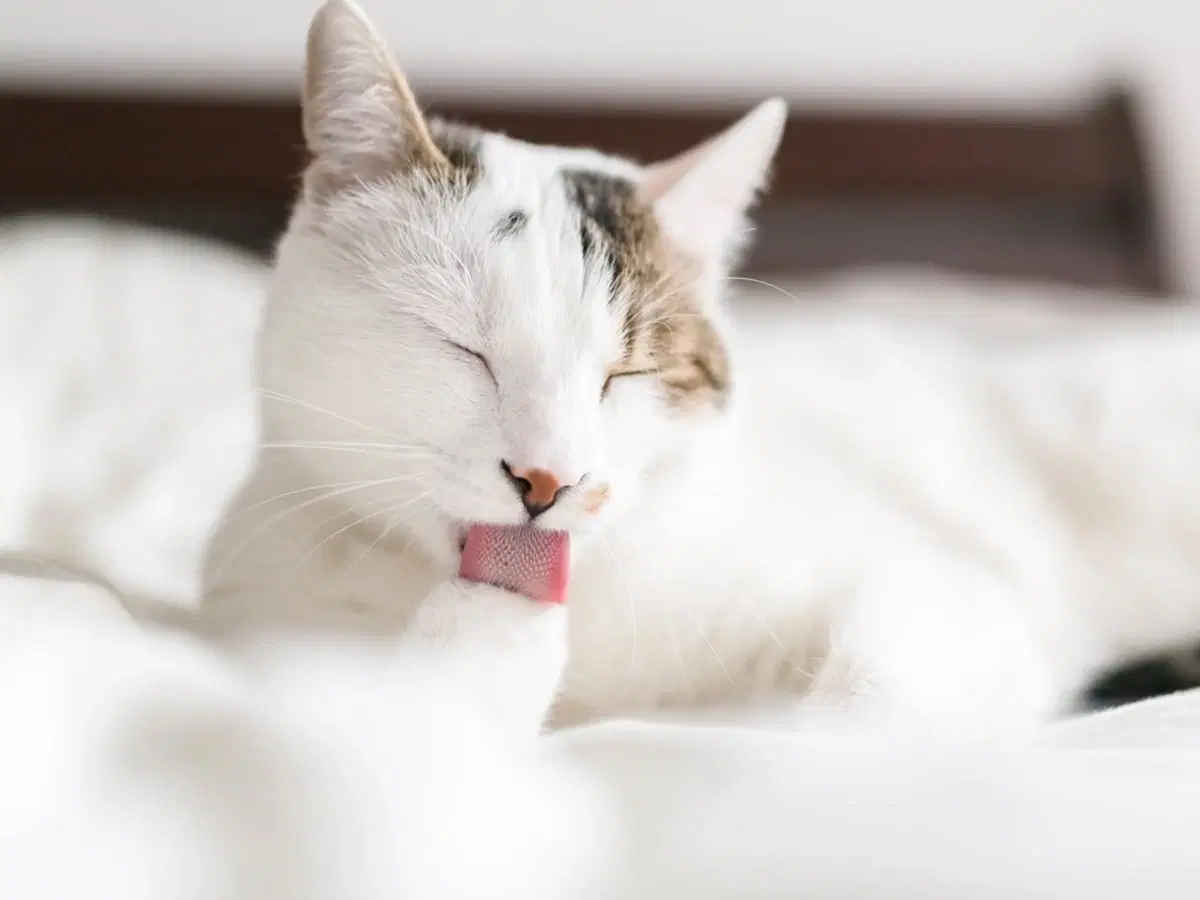Cats may be picky eaters, as every cat owner knows. As a result, the issue of whether they can consume dried fruit is legitimate. The answer is yes, but there are a few factors to consider. Dried fruit is just fruit that has had water extracted from it. This indicates it is more concentrated and hence contains more sugar. As a result, it is preferable to feed dried fruit to your cat in moderation. Furthermore, be certain that the dried fruit you offer your cat is unsweetened. Some manufacturers sweeten their dried fruit with sugar or other sweeteners, which is harmful to cats. Finally, consider the size of the dried fruit bits. If they are excessively large, your cat may have difficulty chewing them and may choke on them.
Are Dry Fruits Beneficial to Cats?
Dry fruits should be avoided in a cat's diet since they may be damaging to their health. While certain dried fruits offer nutrients like fiber and minerals, they are also heavy in sugar and can cause digestive difficulties in cats. Furthermore, some dried fruits, such as grapes and raisins, may contain poisonous chemicals that, if consumed by cats, might result in renal failure. Before introducing any new foods to a cat's diet, always speak with a veterinarian, and stick to cat-specific meals that fulfill their nutritional needs.
Are There Any Risks to Feeding Dry Fruits to Cats?
There are several hazards to feeding dried fruits to cats that cat owners should be aware of. For starters, many fruits are strong in natural sugars, which can be difficult for cats to digest. Excess sugar consumption can cause gastrointestinal discomfort, including diarrhea and vomiting. Furthermore, many fruits, such as grapes and raisins, are poisonous to cats and might result in renal damage or failure. To avoid any negative responses, it is essential to discover which fruits are suitable for cats and restrict their portion sizes. Finally, cats have certain nutritional demands that are best satisfied by a balanced cat food that has been specially developed for them.
How Much Dry Fruit Is Too Much for Cats?
Dry fruits can be toxic to cats if eaten in big numbers. While certain dry fruits, such as bananas, apples, and cranberries, are okay for cats, others, such as raisins, grapes, and currants, are very poisonous and should never be fed to cats. These poisonous fruits contain a chemical that can induce renal failure in cats, resulting in major health problems or even death. It is critical for cat owners to be aware of the possible risks of feeding dry fruits to their cats and to always speak with a veterinarian before introducing any new food products into their cat's diet.
Can Cats Have Dry Fruit Allergies?
Cats are obligate carnivores, which implies that their natural diet is mostly composed of meat. Cats, unlike humans, do not require a wide range of fruits and vegetables to satisfy their nutritional requirements. Some fruits can be toxic to cats if taken in high quantities. While some cats may be drawn to little bits of dried fruit, it is crucial to note that they are not an essential element of their diet. Water should provide the bulk of a cat's hydration, and their nutritional demands should be fulfilled by a balanced diet of high-quality cat chow particularly tailored to their needs. The best method to guarantee their health is to consult with a veterinarian.
What Would Happen If Your Cat Ate Some Dry Fruits?
If your cat ate some dry fruits, keep a watch on them and observe their behavior. While certain fruits are healthy for cats in tiny amounts, some might be harmful. Grapes and raisins, for example, are known to be hazardous to feline health and can result in renal failure. Likewise, several dried fruits, such as apricots, prunes, and cherries, contain pits or seeds that can induce choking or gastrointestinal obstructions. If your cat experiences any strange symptoms after eating dry fruits, such as vomiting, diarrhea, or a loss of appetite, you should see a veterinarian right away.
What are the Symptoms of Dry Fruits Poisoning in Cats?
Dry fruits are a tasty treat for humans, but they can be dangerous to our feline friends. If a cat swallows dried fruits, certain symptoms of poisoning may appear. Gastrointestinal discomfort, including vomiting and diarrhea, is one of the first symptoms to watch for. Dry fruits might affect the cat's regular body functions, causing excessive thirst or urine. Furthermore, dry fruit poisoning in cats can cause severe lethargy and weakness, leading them to move slowly or even become unresponsive. If you believe your cat has eaten dry fruits, you must continuously watch them and seek emergency veterinarian assistance to avoid future difficulties.
Can Cats Eat Almonds?
Almonds are high in beneficial monounsaturated fats, protein, magnesium, and vitamin E. Can cats safely consume almonds? Almonds, contrary to a slew of beliefs, are completely safe, according to the ASPCA. Because cats eat low-fat diets, eating too many almonds may induce digestive disorders such as stomach distress or vomiting. What is the main point? Giving your cat an almond or two is safe, but don't expect these nuts to be very nutritious.
Can Cats Eat Brazilian Nuts?
Monounsaturated fat, vitamins C, E, B6, and A, as well as calcium, copper, zinc, magnesium, and manganese, are all found in Brazil nuts. An odd Brazil nut will not create any serious difficulties for cats, but in large quantities, they may upset your kitty's stomach owing to their high-fat content.
Can Cats Consume Cashews?
Overall, cashews are healthy for cats to consume, but only in small amounts because they are heavy in fat and can upset your cat's stomach and cause diarrhea.
Don't forget that excessive consumption of nuts, particularly cashews, can result in pancreatitis in cats. Because it will necessitate medical care, the best approach to avoid such adverse effects is to serve cashews solely as a rare treat.
Cats and cashews aren't the greatest of friends either, because these nuts are heavy in sodium, and your cat doesn't require much salt in their diet.
Can Cats Eat Chestnuts?
Chestnuts are proven to be healthy for cats, however, they have little nutritional value and are heavy in carbohydrates (about 25 g per 100 g). In comparison to other nuts and seeds, they are lower in fat and calories, making them a healthier snack than cashews or walnuts. Chestnuts include magnesium and potassium, which may be useful to cats suffering from cardiovascular disease. However, pet parents should keep in mind that nuts are only beneficial to cats when given in moderation.
Can Cats Consume Hazelnuts?
This nut is deemed safe for cats, however it does not satisfy your cat's nutritional requirements. You can give your cat a few hazelnuts, but not as a replacement for a regular meal.
Remember that hazelnuts are heavy in fat and might upset your cat's stomach if eaten in excess. They may also pose a choking danger, so don't let your cat consume them unaccompanied.
Can Cats Consume Macadamia?
Cats have been known to suffer significant problems after ingesting macadamia nuts, necessitating pet owners to induce vomiting and promptly see a veterinarian. Even though no actual research has proven that macadamia nuts are poisonous to cats, it is best to keep them hidden for the time being. It's fair to believe that some cats ate macadamia nuts by accident and had no ill effects. However, you should not experiment since the risk is too great and the nutritional benefit is insufficient. Macadamia nuts are heavy in fat (75 g per 100 g! ), therefore eating too many of them might cause pancreatitis and considerable weight gain.
Conclusion
With a Spot accident and illness plan, you can take your cat for treatment at any licensed vet in Canada or the U.S. Spot plans don’t have networks, so whether you’re home or traveling within the U.S, veterinary services your cat receives for the diagnosis, treatment, or management of eligible services can be covered. Spot’s accident and illness plans can help cover a variety of conditions, ranging from broken bones and bite wounds to behavioral conditions, and cancer. And while base plans do not offer coverage for preventive care services, Spot’s Wellness Riders can be added to any base plan for an additional fee and can help cover the eligible costs of wellness exams, vaccinations, dental cleanings, and more! Learn more about cat insurance or get a free quote.

I’m Charlie: canine enthusiast with a knack for figuring out why my dog, Dallas, is more infatuated with tennis balls than me. My lifelong passion for dogs has created a dedication to help other pet parents better understands their furry family members!
*Jan 2019 to Aug 2024 administrator claims data.
1. “5 Dangerous Foods You Should Avoid Giving Your Cat | Hill’s Pet.” Hill’s Pet Nutrition, 20 Sep 2022, www.hillspet.com/cat-care/nutrition-feeding/toxic-foods-for-cats?lightboxfired=true#.
2. Grape and Raisin Poisoning in Cats | Joii Pet Care. 7 Oct. 2023, www.joiipetcare.com/health-conditions/cat/grape-and-raisin-poisoning/.
3. Adams, Christian. “Can Cats Eat Apricots? Vet-Approved Nutritional Facts & Safety Tips.” Catster, 12 June 2024, www.catster.com/nutrition/can-cats-eat-apricots/.
4. “Can Cats Eat Almonds?” Cats.com, 27 May 2022, cats.com/can-cats-eat-almonds#:~:text=Sweet%20almonds%20are%20non%2Dtoxic.
5. “Can Cats Eat Nuts? A Full Review of Nuts and Seeds Your Cat Can Eat.” Petfeed - Pet Care Tips, How-to Guides, Funny Stories, Comics, and Videos, 31 Mar. 2021, petcube.com/blog/can-cats-eat-nuts-and-seeds/#:~:text=Brazil%20nuts%20contain%20monounsaturated%20fat.
The information presented in this article is for educational and informational purposes only and does not constitute or substitute for the advice of your veterinarian.












